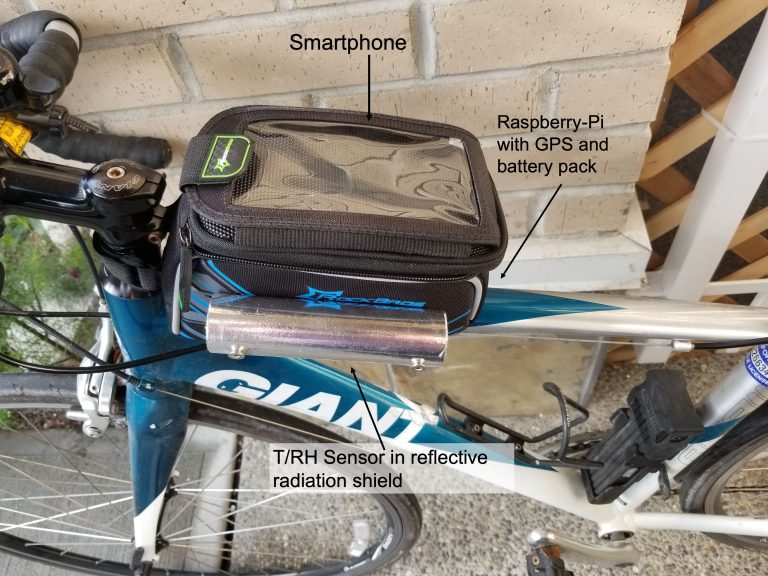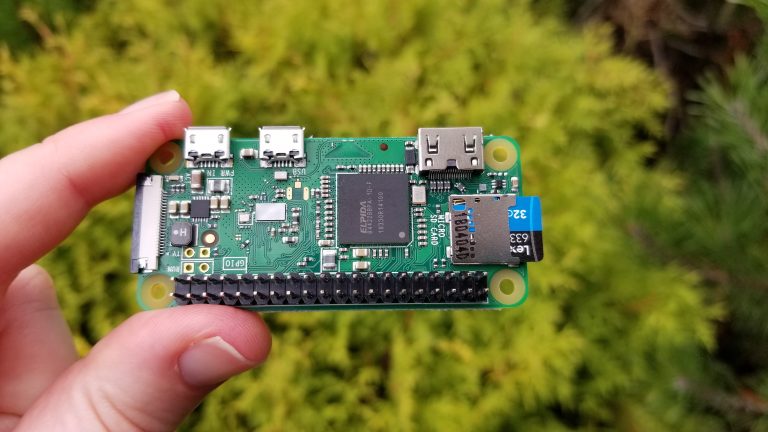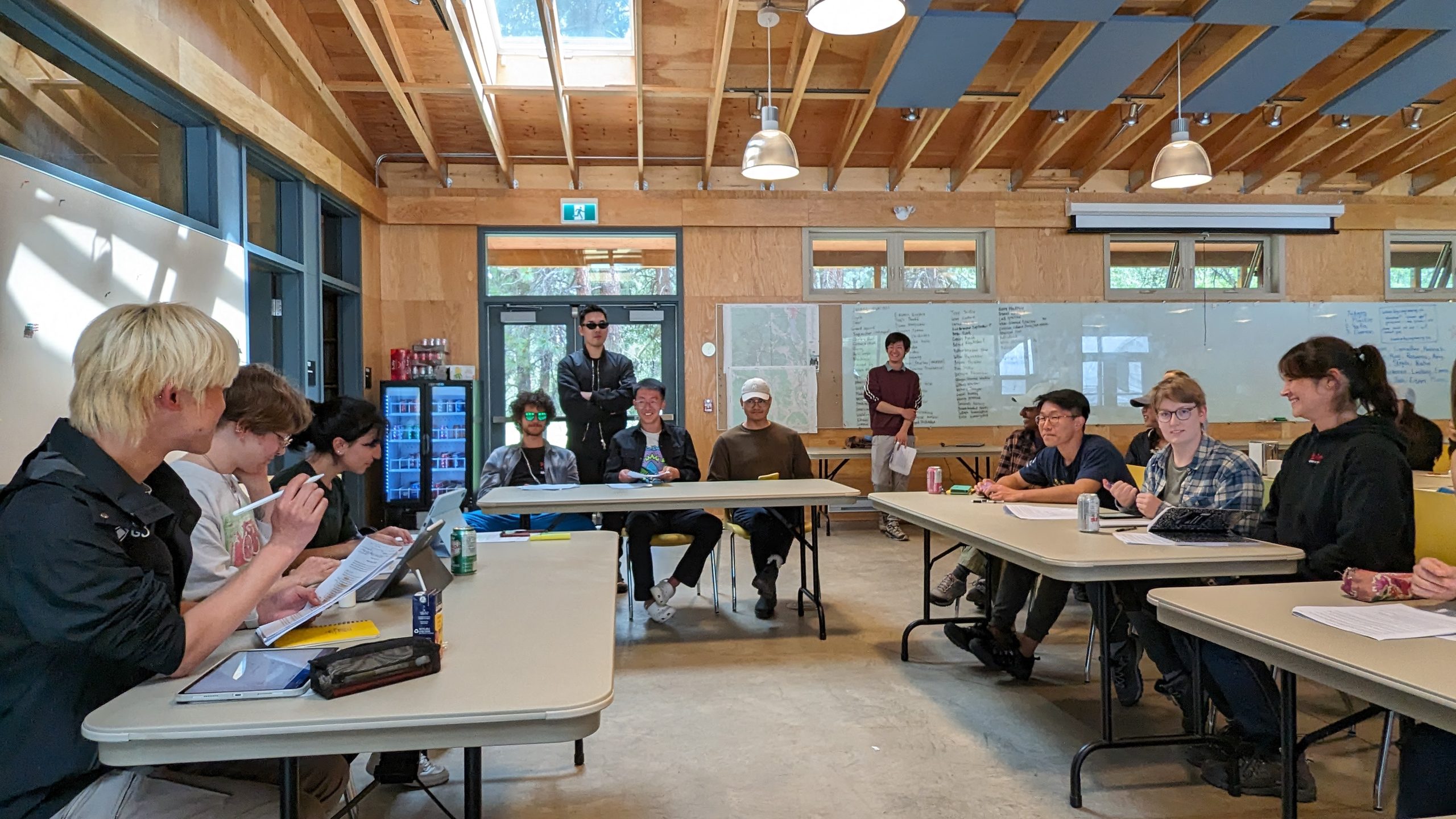

The kit can be easily attached to a bicycle and enables students to capture live data. Image: Sara Knox
The Meteobike project, which enables students to measure meteorological data while cycling around the city, will now receive support from UBC’s Teaching and Learning Enhancement Fund.
A low-cost, mobile weather station comprised of a microcomputer (Raspberry Pi), GPS receiver and a temperature/humidity sensor, the Meteobike has been been successfully utilized for the past two academic years by undergraduate students taking UBC Geography’s Urban Meteorology course.


The kit utilizes the processing power of Raspberry Pi – a tiny, single board computer
The project was designed to help students develop a better understand of the urban heat island (UHI) effect, in which some urban areas experience higher temperatures than their immediate surroundings. Students can easily attach a Meteobike unit to their bikes then ride to collect real-time meteorological data, allowing them to map the UHI effect.
Assistant professor Sara Knox, who runs the project, hopes that the TLEF funding will allow Meteobike to expland, become more accessible, include additional new low-cost sensors, and develop standardized calibration protocols to ensure more accurate and reliable measurements.


